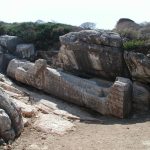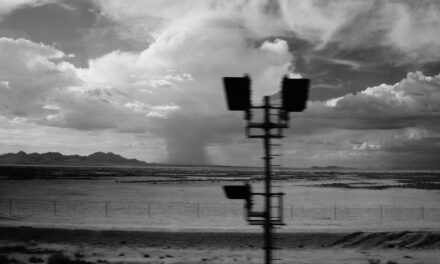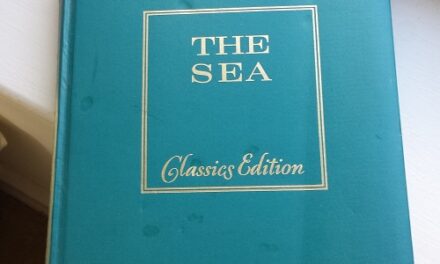 Do you remember when you were a kid and you’d tell your mother you were bored, and she would say, “Only boring people are bored,” and then lock you outside while it was snowing? To discover how strange/cold the world could truly be?
Do you remember when you were a kid and you’d tell your mother you were bored, and she would say, “Only boring people are bored,” and then lock you outside while it was snowing? To discover how strange/cold the world could truly be?
If not, you probably had better childhoods than certain members of our staff, or perhaps you are on the same wavelength as our contributors, who needed no help discovering the bizarre in their own lives. Our contributors from 9.1 revealed the plain strange and sometimes macabre origins of their poems and stories. Pick up your copy of 9.1, and let’s get weird.
Joe Kapitan (on “Brothers of the Salvageable Crust”): My favorite kind of stories to read, and therefore to write, are stories of warped realism—where one aspect of an otherwise realist story is stretched to the absurd. That single absurdity, though, can be enough to provide fresh perspective on the surrounding reality. Think George Saunders or Aimee Bender, two masters of this formula. I’ve also found that, within a framework of limited absurdity, a story can be both funny and poignant. RE “Brothers of the Salvageable Crust,” I’d read a news story about the increasing use of interactive learning devices in high-school classrooms. I imagined an instructor getting carried away with the technology. I pictured one-liners and victims, side by side.
John Poch (on “Two Rooms”): [The poem] was written while I was in residence at Headlands Center for the Arts. Working one morning, I was interrupted by the sounds of sex in the next room; the walls in that old house were thin. These artists “making love” in the next room had made it known to everyone that they had a second profession as actors in pornographic films. Most of the other artists and administrators seemed to find this intriguing, while a few of us found it repulsive. I found myself trying not to judge them, and yet I judged them. One cannot know what goes on behind closed doors, or behind the curtain, or behind the scenes, or above a ceiling, or within a body, or in the soul, but sometimes one believes one knows.
Nathaniel Perry (on “Bizarre”): These particular sections in this issue of CR, from my poem, “Bizarre,” are examples of some of the side-roads that a longer poem takes. The titular focus of the poem is an eighteenth-century adultery/infanticide scandal that took place near my home here in rural Virginia. The actors in this scandal were members of the Randolph family (of John Randolph fame), who lived for many years on a local plantation, named, incredibly, Bizarre. The poem itself revolves mostly around parenting, but knowing that my readers might not trust a long poem about infanticide to speak entirely coherently to the experience of raising children, I knew the poem would have to, at times, veer elsewhere. Somehow, after hearing once again Mike Seeger’s amazing set of field recordings of the Virginia banjo player Dock Boggs, I knew that he belonged in the poem. Music and parenting aren’t all that different, in some ways—there is technique and there is mystery, and they’re kind of inseparable. And Ezekiel? I’m not sure how he got into this poem, but he lived with something too he could barely understand. Let’s just say that anything you nurture, live with, and call your own—a five-string country blues, a prophecy, a child—can be profoundly bizarre.
James Norcliffe (on “Laika”): I’m not entirely sure where “Laika” came from. It was one of those gift poems. The opening line certainly prompted what followed. The Russian theme probably came from the fact that I was at the Trois Rivieres International Poetry Festival in Quebec last autumn and kicking about with a trio of Russian poets. Laika would be familiar to baby boomers. She was the first creature from earth to be put into orbit. Wikipedia tells me that Laika was a Russian street dog (the name means “Barker”). In those days there was not merely a space race, there was something of a language race as well: would sputnik win, or satellite, would astronaut win, or cosmonaut? The strange thing in retrospect (I was a small boy) is that nobody seemed to comprehend (or care?) that Laika was doomed as there was insufficient technology to bring her down. Still, while the satellite/sputnik circled above we looked up marveling that a living thing had escaped the bounds of gravity. Or not. The final irony, we have since learnt, is that Laika probably never even made it that far, that the cooling system failed and that the poor creature almost certainly was cooked to death long before a single orbit was completed. Strange days. Most of this macabre stuff is irrelevant to the poem, but it does provide a shadow, a counterpoint to the poem’s lurching rhythm and ersatz romanticism.
Christopher Bakken (on Kouros/Kore): My new book, Impressions of a Drowning Man, opens with a poem
imagining the failed suicide of Greek poet Kostas Karyotakis, who in July, 1928, spent ten hours trying to drown himself, but proved too capable a swimmer. This poem’s inquiry into the idea of suicide echoes throughout the collection, culminating in “Kouros/Kore,” a fourteen-section poem that appears at the book’s end. I think of the poem as an abstract “sonnet” in which I use the tropes of Greek sculpture to examine two figures—one male (kouros) and one female (kore). The two sections printed in The Cincinnati Review are both addressed to the “kouros” figure, which I imagine by way of the monumental kouroi of Naxos: abandoned archaic statues that still litter the island’s hillsides.












